Iran's Capital Faces Serious Water Shortage In Coming Months
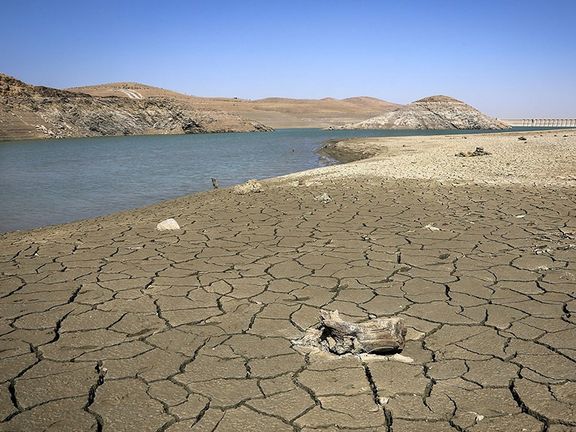
A water resources official in Iran says inflow of water into Tehran area dams has decreased by 30 percent in the past six months, compared to the previous year.

A water resources official in Iran says inflow of water into Tehran area dams has decreased by 30 percent in the past six months, compared to the previous year.
Mohammad Shahriari told Tasnim news agency that from September to the end of March, 409 million cubic meters of water has entered dams in the Tehran province, while in the 2020-2021 season 573 million cubic meters entered the capital’s vital reservoirs.
Iran has been suffering from drought for at least a decade and this year officials have been warning of a further decrease in precipitation.
In 2021, large-scale water protests took place in two important provinces, Khuzestan and Esfahan, with several people killed and hundreds injured by security forces.
As drought persists, more underground water is exploited for irrigation, depleting natural reservoirs formed during thousands of years. This has led to ground subsidence, alarming government officials who have circulated confidential memos on the subject, according to a lawmaker who spoke to local media on Sunday.
Old and unregulated irrigation methods, as well as an aging urban water distribution infrastructure compound the shortage.
However, politicians and experts say that there are no consistent government plans to deal with the water crisis, which can result in mass migration of millions of people in the next ten years.

Saeed Afkari, the brother of wrestler Navid Afkari who was executed in 2020, says prison officials his brother, Vahid's arm and security forces shot at them.
Saeed Afkari said on Sunday that prison officials had broken his other brother's hand when he resisted as guards wanted to transfer him to a solitary cell.
Afkari also said that prison guards fired at him and his family from the rooftop, stopped firing after the family shouted, "Shoot the bullets into our chests."
Earlier in March, the third brother Habib Afkari said he has been released from prison but another brother, Vahid, is still in solitary confinement.
Habib had been sentenced to 27 years and 3 months in prison and 74 lashes and was being kept in a windowless solitary confinement cell since Navid’s execution in September 2020.
Navid Afkari was arrested along with his brothers Habib and Vahid during protests in Iran in 2018 and was executed despite international campaigns to save his life.
He initially received a death sentence for an “act of war against God” for his participation in protests, the authorities later charged him and his brothers with the murder of a government employee.
According to the Oslo-based Iran Human Rights in September 2021, Shahin Naseri, a prisoner who testified that Navid Afkari was tortured to confess to the killing, died in custody in Greater Tehran penitentiary “in suspicious circumstances”.
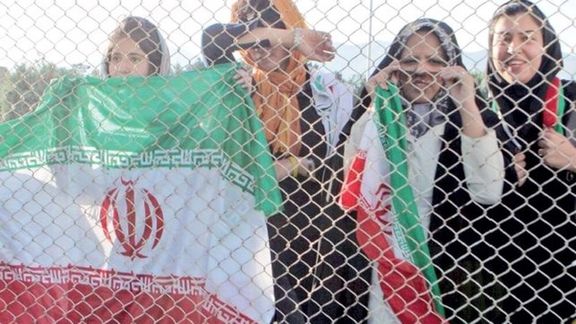
A former president of Iran's football federation has strongly criticized hardliner religious authorities for insisting on banning women from soccer stadiums.
Speaking to the reformist Eslahat Press website, Mohammad Dadkan criticized the authorities for claiming that it is against Islam to allow women to join men in watching games at stadiums.
Dadkan argued that those who oppose women's presence in stadiums, on the grounds that it is against their dignity to be present where male fans swear profanities, should feel more concerned that so many Iranian women have to be sex workers abroad, such as in Dubai and Turkey.
Dadkan went on to point out that women had to go abroad as sex workers because the government failed to provide decent jobs to them and added that officials are not ashamed about their failure but are concerned about women watching a game.
"There is so much prostitution, in the Mashhad (a Shiite religious center) where women were not allowed into the stadium, and no one protests about [disrespect to women or] religious dignity. Does watching a match cause harm to religious sanctities?" Dadkan who served as the president of the Iranian football federation from 2003 to 2007 said.
Hundreds of female fans were once again denied entry into a soccer stadium on Tuesday in Mashhad in northeastern Iran to watch a World Cup qualifier between Iran and Lebanon, despite FIFA’s pressure to lift the ban on women entering stadiums. The fans, with tickets in their hands, were stopped and were pepper-sprayed when they demanded to be allowed in.
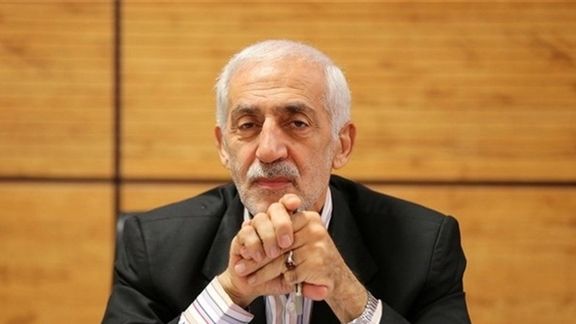
In an unprecedented turn of events, many Iranians urged FIFA to ban their country from the World Cup for forcibly barring women from the match.
Mashhad is home to numerous hardliner clerics who are against the presence of women in male dominated places. Firebrand representative of the Supreme Leader in the city, Ayatollah Ahmad Alamolhoda has been banning concerts and cultural events for years.
It was during Dadkan's tenure as federation president in 2005 that a group of Iranian women for the first time managed to get into a stadium in Tehran to watch a World Cup qualifier match between Iran and Bahrain.
The renowned director Jafar Panahi made Offside, a film about the incident which won the Sliver Bear at the Berlin International Film Festival in 2006.
"I stood against the authorities who were saying women should not enter the stadium and [ordered] to open the gates … President [Mohammad] Khatami was also present [at the stadium] … I said I would take responsibility for all the consequences," Dadkan said about the event.
The clerical establishment was outraged by the incident and used it as an excuse to attack the reformist government.
Female fans had to wait until October 2019 to be allowed to enter a soccer stadium again when authorities had to relent under pressure from FIFA, which threatened to penalize the Iranian federation for gender discrimination.
For nearly a decade the world’s soccer authority has tried to convince Iran’s clerical rulers to lift the unwritten, four-decade-old ban, which has led to arrests, beatings, detentions, and abuses against women.
In September 2019, a female football fan, Sahar Khodayari, who came to be known as the “Blue Girl” after her favorite team, Esteghlal FC, was reportedly sentenced to jail for trying to enter a stadium disguised as a man. She died by self-immolation, causing a domestic and international outcry.
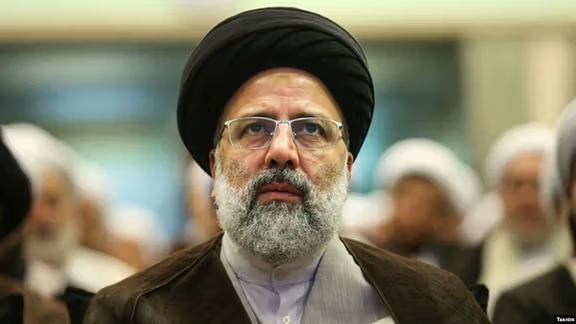
Iran’s President Ebrahim Raisi says those countries that give in to the hegemonic goals of the United States and Isreal will suffer the wrath of their nations.
Raisi made the remarks in a phone call with his Iraqi counterpart, Barham Salih, on Sunday, adding that “Any country in the region, which turns a blind eye to the hegemonic goals of the United States and the Zionist regime, will not only step on the rights of its nation, but will also invoke the wrath of the Muslim nations”.
"It is now clear to everyone that foreigners are only pursuing their own interests and hegemonic goals", Raisi said, adding that “We consider the slightest insecurity in Iraq as detrimental to the entire region. Therefore, we welcome the realization of the interests of the Iraqi people and the establishment of a strong government in this country”.
The Iranian president added, “The Islamic Republic of Iran supports the unity, independence, security, and elevation of the regional and international status of Iraq”.
Iran's foreign ministry warned Iraqi authorities earlier in March that Tehran would not tolerate the use of Iraqi soil by third parties to conduct attacks against Iran.
The comment came a day after Iran's Revolutionary Guards (IRGC) targeted the capital of Iraq's autonomous Kurdistan, Erbil, with over a dozen ballistic missiles, claiming it was targeting a secret Israeli base. Tehran has armed and supported tens of thousands of Shiite militias in Iraq initially to fight the Islamic State group but later as lever of influence in Iraqi politics.
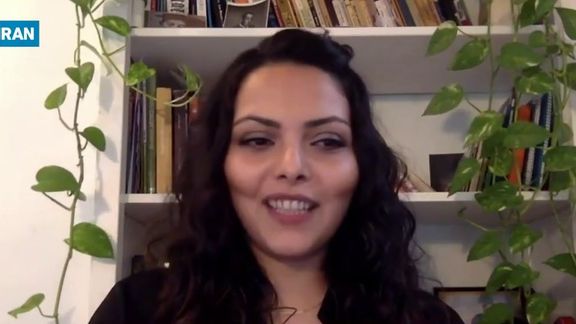
Over 300 Iranian film industry women, including superstars, movie directors, and others have protested to sexual abuse, harassment, bullying and inequality.
Niki Karimi, Hedieh Tehrani, Sahar Dolatshahi and Taraneh Alidousti are among the Iranian superstars who have signed the statement.
While male artists and most film industry personalities such as male producers as well as most state officials have ignored the protest so far, the Iranian Judiciary's deputy for human rights, Kazem Gharibabadi, and former Deputy Interior Minister Mostafa Tajzadeh have expressed their support for female artists. Gharibabadi said the judiciary is prepared to take action if the artists file complaints against the aggressors, and Tajzadeh said that "all freedom-loving and responsible citizens should defend the rights of film industry women."
Nima Hasani Nasab, the editor of the Cinema Daily, posted the pictures of a number of female Iranian filmmakers and movie actresses on his Instagram page on March 31 along with the text of a statement issued by more than 150 women involved in the industry against violence and sexual harassment. The number of signatories reached 300 by April 2.
The artists said in their statement, "We have a right to have a safe working environment free from sexual blackmailing,” and called on the Cinema House, which operates as a trade union for film industry workers, to "set up a committee with mainly female members to investigate the cases of sexual abuse, violence and harassment against women in the film industry."

The statement was issued after a well-known female assistant director, who is among the signatories of the statement disclosed that an Iranian actor had bullied and harassed her and attempted molestation and exhibitionism behind the scenes of an Iranian movie. She repeated the accusation in conversations with foreign-based Persian media.
Iranian actress Shaghayegh Nowrouzi, told Iran International TV in an interview it was important that "female artists have stressed the women's movement in their statement and the mechanism they have provided to voice their protest against sexual violence." She said "women artists explained the problem in plain terms so that it could be understood by the public. They had also explained why the problem was important and finally they issued a warning to Iranian society about the spread of such violence in a systematic form."
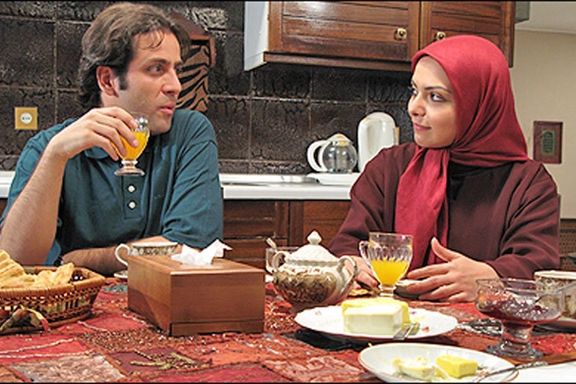
Nowrouzi praised her colleagues for putting forward a practical solution in the form of suggesting setting up a professional investigation committee at their trade union.
Meanwhile, women's right lawyer Pegah Banihashemi told Iran International television in another interview: "The social movement Me Too, paves the way for taking cases of sexual abuse at workplace to the courts. The movement provides documentation for taking the problem to a judicial level for investigation." She added that the process of collective witnessing that is inherent in the Me Too movement can help the judicial investigation particularly when time has passed since the sexual violence took place.
The Iranian Me Too movement during the past two years was limited to a few revelations made about a few cases of sexual abuse and rape and at least one of them was investigated in courts in Tehran, but other cases have been largely ignored. Two years after its launch, the Instagram account of the Iranian "Me Too" movement, @me_too_movement_iran, got its first recognition on March 28 from a vocational association, the Trade Union of Production Designers and Assistant Directors of the Iranian cinema.
While the account's posts and disclosures generated very few comments, a disclosure in a March 25 post about several cases of harassment and sexual abuse during the past few years received widespread comments, endorsements, and "likes" by Iranian artists and fans.
The post about the recognition of the movement and its Instagram account on March 28 was liked by 4,779 users in less than three days. Meanwhile, the number of the account's followers jumped from 29,000 on March 25 to more than 42,000 on March 28, which means the latest revelation by the well-known female assistant director has received social attention.
Nonetheless, as women's rights activist Mahdiyeh Golrou told the Iran International Television, "the efforts are unlikely to leave the right impact as long as Iran lacks punitive and preventative laws to restore justice regarding sexual predators and there are no NGOs to lend their support to women who are subjected to sexual violence and harassment."
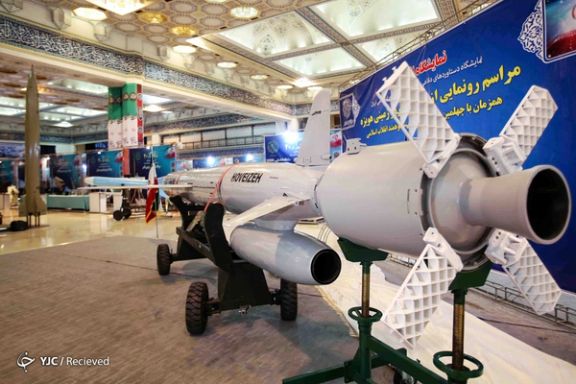
A new report says Russia is running out of some weapons because critical parts were made in Ukraine, including Kh-55 nuclear capable cruise missiles that are also used by Iran and China.
The Telegraph cited senior defense sources on Friday that Russia can’t restock its Kh-55 cruise missiles, which are launched from the air and can carry nuclear warheads, because they rely on an engine manufactured in the northeastern Ukrainian city of Kharkiv.
President Vladimir Putin may ask China to address its arms restocking crisis because they rely on an imported engine that is manufactured in the northeastern Ukrainian city of Kharkiv.
The end of the Cold War left Ukraine with 1,612 Kh-55s, 575 of which were handed to Russia while the rest were meant to be destroyed under US-led Nunn–Lugar Cooperative Threat Reduction program. However, in 2001 Iran acquired 12 of them illegally from Ukraine in a deal allegedly worth $49.5 million, and an additional six were exported to China.
Subsequently in 2015, Iran unveiled a long-range cruise missile under the name “Soumar”, largely believed to be derived from the Kh-55. In February 2019, Iran unveiled the Hoveyzah Cruise Missile, a surface-to-surface missile that also closely resembles the Kh-55.
The engines for all Russian helicopters, ships and cruise missiles and a substantial portion of fighter jet engines and ground-to-air missile and tank components were being made in Ukrainian factories, which no longer supply Russia for obvious reasons.